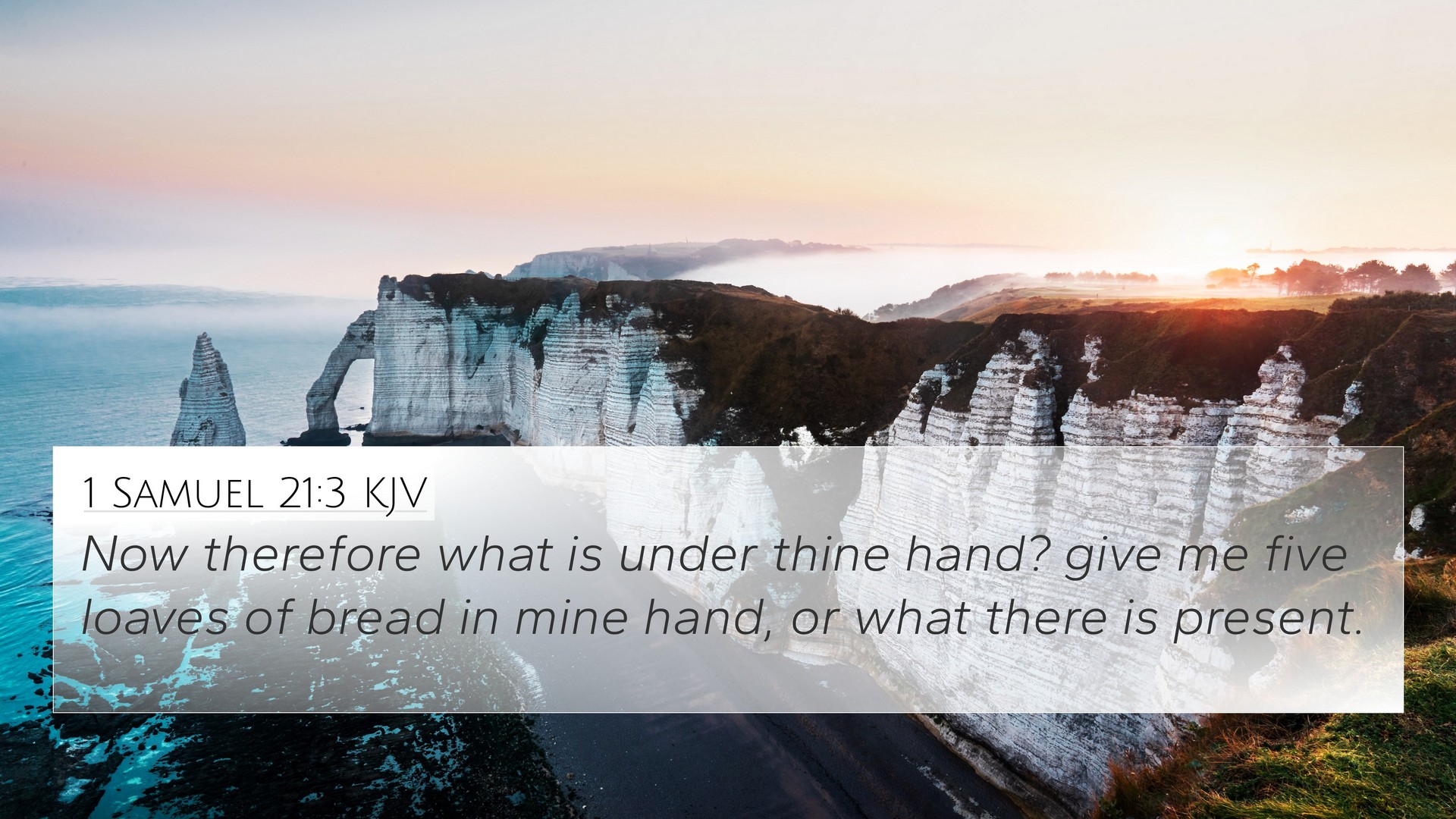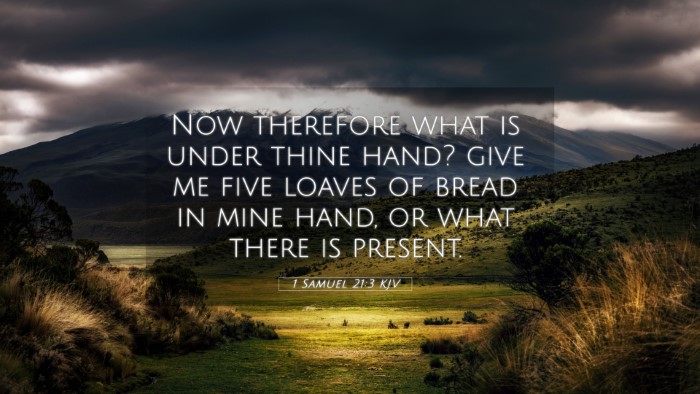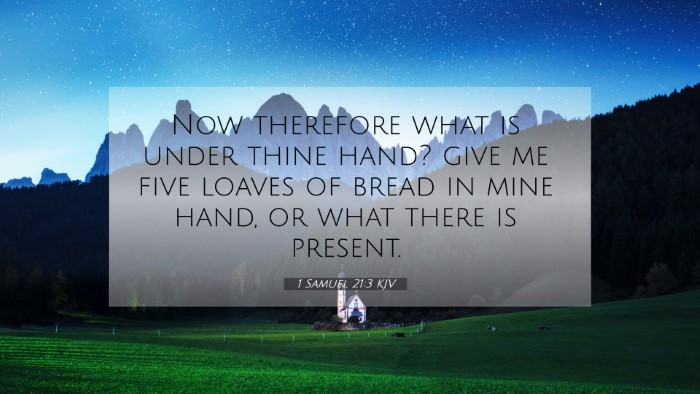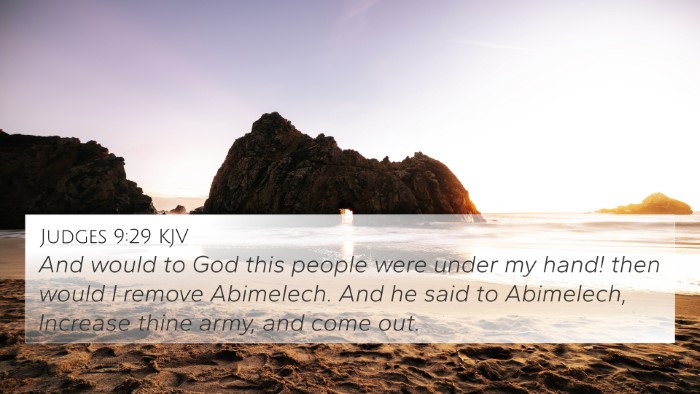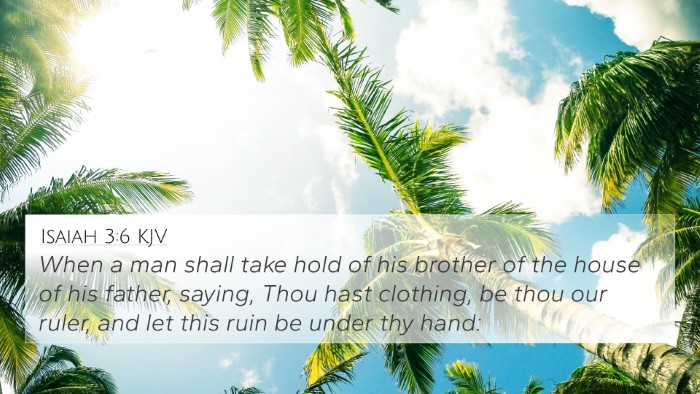Meaning and Interpretation of 1 Samuel 21:3
1 Samuel 21:3 states, “Now therefore, what is under your hand? Give me five loaves of bread in my hand, or whatever can be found.” This verse is part of a narrative where David, fleeing from Saul, visits Ahimelech the priest at Nob. He requests bread, highlighting his dire circumstances.
The following commentary insights provide a comprehensive understanding of this verse:
Context of the Verse
In this portion of scripture, David finds himself in a precarious situation. He is running from Saul's wrath and needs sustenance. This scenario raises questions of morality and divine providence, showing how God often provides for His people in times of need.
Commentary Insights
- Matthew Henry: Henry suggests that this interaction with Ahimelech emphasizes David's faith in God's provision even when in desperate circumstances. He points out that David was in a position where he had to trust God alone for sustenance, implicating the importance of divine reliance.
- Albert Barnes: Barnes draws attention to the significance of the bread requested, pointing out the switch from common bread to sacred showbread. This underscores a key biblical theme—that God's provision often transcends standard human expectations and opens conversations about holiness and sacrilege.
- Adam Clarke: Clarke emphasizes the urgency of David's need. He suggests that David's deception about his mission posed moral questions about lying for survival, pointing out the tension between human actions and divine will.
Thematic Connections
This verse not only stands alone but also connects deeply within the larger narrative of scripture, which illustrates themes of divine providence, the significance of bread (the Bread of Life), and the moral dilemmas faced by believers.
Cross-References
- Matthew 12:3-4 - Jesus references David eating the showbread, showcasing the themes of mercy over sacrifice.
- John 6:35 - Jesus states, "I am the bread of life," linking David's hunger to spiritual sustenance found in Christ.
- Psalms 34:10 - "The young lions do lack, and suffer hunger: but they that seek the LORD shall not want any good thing," highlighting God's provision for those in need.
- 1 Samuel 22:1-2 - Further develops David's narrative, as he then gathers followers who are distressed, thus showing God's continual provision and support.
- Exodus 25:30 - Mentions the showbread in the context of God’s instructions for temple worship, illustrating the holiness of provisions.
- Hebrews 5:6 - Refers to Jesus as a priest, connecting back to the actions of Ahimelech, linking old priestly rites to the new covenant.
- Philippians 4:19 - “But my God shall supply all your need according to his riches in glory by Christ Jesus,” reinforcing the theme of God's provision.
- James 2:15-16 - Discusses faith in action, similar to David’s desperate request for aid; also reflects on charity and the duty to assist those in need.
- 1 Kings 19:5-7 - Elijah receives divine sustenance in the wilderness, paralleling David’s experience of God’s provision during distress.
- Mark 2:25-26 - Jesus again refers to David’s actions with the showbread, reinforcing the theme of reinterpreting the law through mercy.
Conclusion
In conclusion, 1 Samuel 21:3 is much more than a simple request for bread. It encapsulates profound themes of faith, reliance on God, and the implications of divine provision within the life of David. Through examining this verse and cross-referencing it with other Biblical texts, one can gain a deeper understanding of God's enduring support and the moral complexities experienced by His followers.
For those exploring the connections between this verse and others, utilizing tools for Bible cross-referencing can highlight themes and teachings, providing a broader understanding of scripture.
